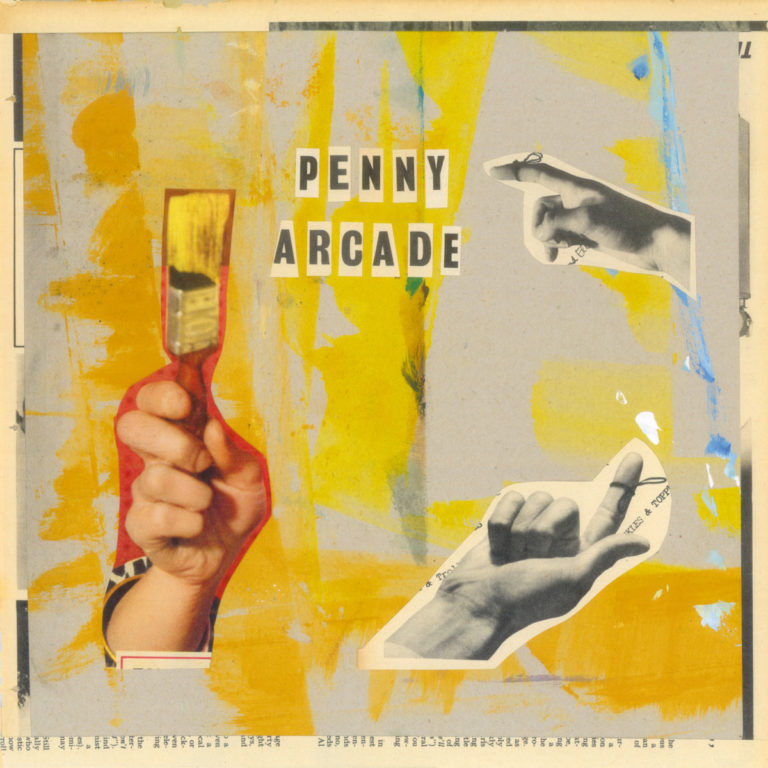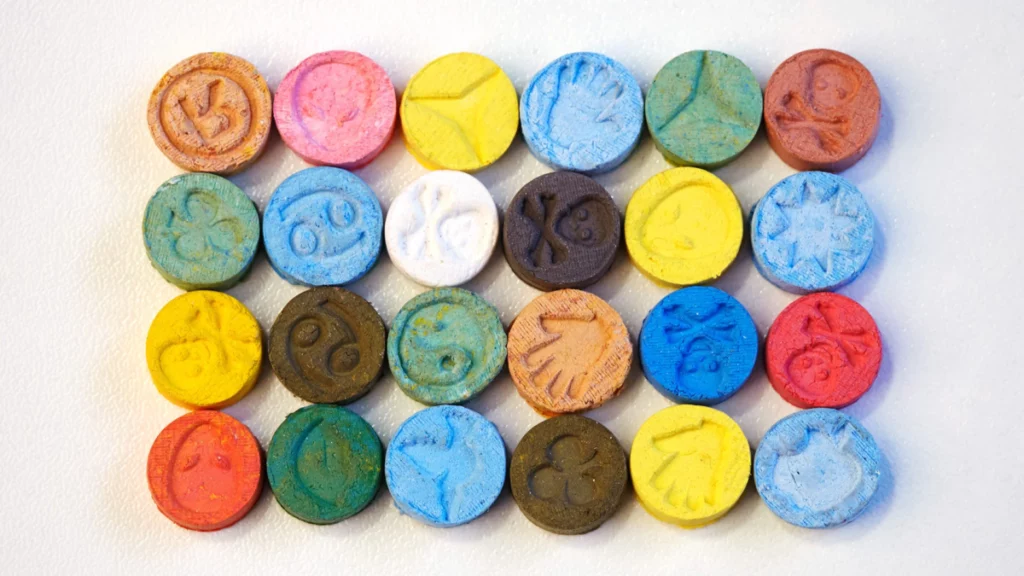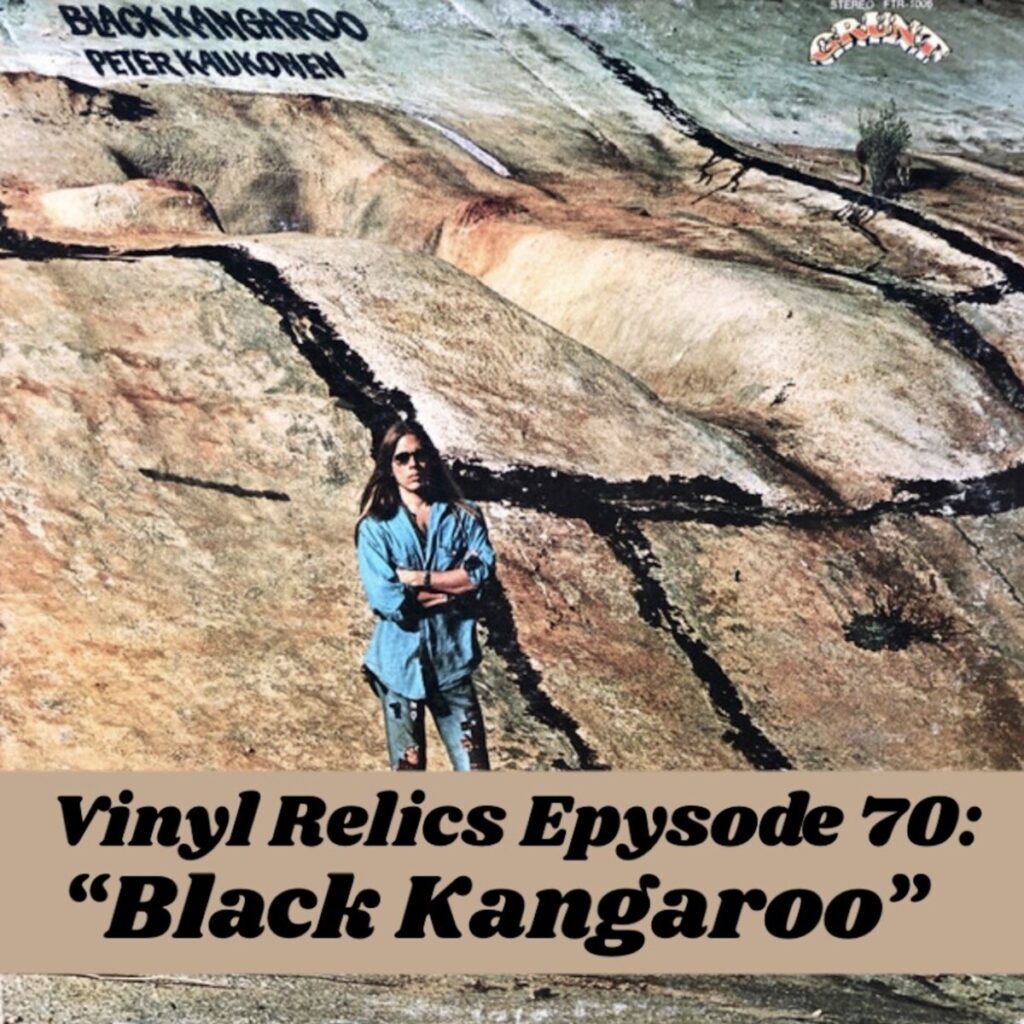Backwater Collage by Penny Arcade–Album Review
Backwater Collage by Penny Arcade–Album Review
Penny Arcade’s Backwater Collage, while ostensibly a debut album, is truly the work of a blossoming veteran figure in psych revival. The minimal, West Coast-inspired James Hoare has released several self-impressionistic albums under Veronica Falls, Ultimate Painting (alongside Jack Cooper), and The Proper Ornaments. Having been four years since his previous Proper Ornaments release Mission Bells, the aptly titled Backwater Collage instantly feels like a sister record, or at least a playful, British tongue-in-cheek interpretation of the former.
Hoare’s previous albums have been long-standing LPs in my collection, as he has mastered the craft of the Sunday meets Friday afternoon record (two of my favorite moments in the week). On Backwater Collage, Hoare has put together an honest and instantly classic record that, while not inventing the wheel, reinvents his previous work– offering up something introspective and familiar, yet newly inspired. A prolific gent, Hoare has seemingly continued to digest the healthy dose of Velvets-inspired minimal rock & and late 60’s West Coast roll in the last four years, and likely a fair bit of classic film. On Backwater Collage, Hoare has found more instrumentation (including the unforgettable vibes on “Jona”), but not necessarily a larger need for sonic production. This is intended as a compliment, because this brand of true, heartfelt music, which sometimes is hard to deem as rock & roll, never really *needs* a soaring vocal range or much more than the vintage guitars and simple synths presented here. Being a long-time fan of his previous work, I feel at home and very much excited by Penny Arcade’s debut, which is much more than cheap fun – laced with meaning, simple, playful melodies, clean Lou Reed-inspired guitar, and the simmering mid-tempo grooves that Hoare has eloquently mastered.
The initial single releases “Jona” and “Don’t Cry No Tears” open the record, providing the late 60’s soundtrack that would work just as well in an episode of Columbo or, in 2024, as I prepare my day on a Friday afternoon. “Jona” (as well as the rest of the record) is vocal-forward, which I interpret as Hoare’s attempt at storytelling, with our main character Jona representing a familiar friend. “Hey Hey, Hands are by his sides, hey hey, counting alibis” feeling as a reference to the proverb “idle hands are the devil’s workshop”. The mysterious noir-laced backdrop and the initial single artwork looking like a ransom letter only further the idea of the menace we learn more about throughout the rest of the record. This kind of internal investigation is hyperbolically just a deeper look into the soul of James Hoare.
“Don’t Cry No Tears”, the second track and previously released single, is a nice reminiscing and nostalgic opener to the simple 60’s groover “Want You Around”, a love song to someone we don’t get to meet. All of these songs illustrate, back-to-back, the story of a man finding something, losing it, and only finding himself more & more in the meantime. His soft, near-spoken, vocal delivery is a tender way of speaking to his audience and simultaneously to himself. “Dear John”, is a melancholy open letter about a lost friend John, that says so much and so little. I find myself wondering if this is once again, our protagonist looking for answers through someone from the past. All again, characters in Hoare’s universe are constructed with ambiguity in a London-style fog over a genre that is too often synonymous with the colorful hippy movement. Ironically, this leads into the short instrumental “Prodigal Son”, a drum-forward groove with an uptempo chord progression that begins to shine some light on this noir piece, almost a comic relief.
“When the Feeling is Gone” hides its lyrics in its reverbed-out wash, where the listener begins to reflect the message as an internal dialogue rather than simply someone singing a nice melody. The hollow harmonies sing the mantra “Don’t go wasting your time” when the feeling is gone, all ending with a distorted lightweight synthesizer, impressionistic of the anger one can hold when they’re combative with themselves. “Black Cloud” is appropriately the darkest tune of the record– one that offers no chordal resolution with painful lyrics that can bring a tear if one finds themselves in the same world as the protagonist. “Words are sharp, cut you in two”, a hovering lyric that appropriately paints the landscape for the well-composed guitar solo outro. As a guitarist myself, I need to say that Hoare’s guitar playing is top notch and, while not going for technical virtuosity, he shines above all with his melodic sensibility that is simultaneously unlike most other guitarists that come to mind, while being cut from the same cloth as some of the best.
Maybe the most interesting juxtaposition of tunes comes from “Black Cloud” into” Mr. Softie” – an early Syd Barrett-style song, telling the story of the man who “Lives inside his head, paints his picture clean, but it’s not what it seems…”. A unique take potentially at Hoare himself, who co-fronted the Ultimate Painting years prior, now speaking to his current audience, wondering if they can see him for who he has grown to be. While this is all my speculation, this kind of honesty through music is admirable in its depth and, regardless, is much more than the easy, breezy album that it leads on.
Kate Mount
The daydream ride “Dennis” could be the album’s storytelling climax, albeit a hard one to dissect & discern. The lyrically heavy song sits on top of some of the most beautiful chords on the record. It carefully refers to the “knife’s edge” & “silence” in such ways that the listener is left wondering if the future of our main character will finally find the sunny ray he’s been crooning for – whether it’s through an old friend, his brothers, or a lover. The iconic cigarette-laden imagery grays out the faux-colorful bohemian musician lifestyle one might have expected from the psychedelic artist James Hoare. This album’s closer, “One More”, cuts right to the chase, with its straightforward reference as if to say, “There ya go, there’s another record”. While giving listeners no inkling of it being a celebratory, end-of-the-work-day smoke that we can all appreciate or the stress-induced idea for another fix – Backwater Collage leaves us hanging just as intended.
Penny Arcade’s debut runs deep. It stings and shines brightest when treated as an album from one song to the next. The cadence of themes, while feeling familiar, brings out new, introspective elements to Hoare’s work. His delicate yet well-mastered songcraft inspires on many levels–both as a musician and a human looking for goodness in the day. I hope that if my speculations above are correct, James Hoare can find the things he is looking for and that this Backwater Collage of some menacing dark ideas can be looked back on as the true ultimate painting or proper ornament that it is.
James, if you’re reading this, bravo.
Signing off,
– Overhand Sam
Overhand Sam is an upside-down mid-fi guitarist, songwriter, and producer from Rochester NY
Gallery
Recent Articles
Unicorn by Rio Kosta–Album Review
•
February 24, 2026
Vinyl Relics: Black Kangaroo by Peter Kaukonen
•
February 21, 2026

Loading...




